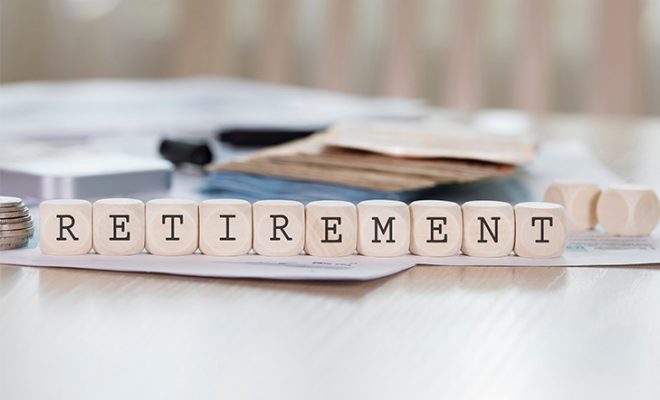The Effect of COVID-19 on Retirement Planning

For those who do not have a retirement plan in place, this might be the right time to make one. With many uncertainties lurking around, the formulation of a concrete retirement strategy has become a necessity. The idea behind a retirement plan is to secure the future and make sure that when one is not in the position to earn, they get the required financial support through savings.
The coronavirus pandemic has caused employment issues for several individuals. Volatilities, associated with the market and one’s health, are now coupled with ambiguities surrounding their employment. Amid these uncertainties, those who are planning to retire in the coming few years would have to consider the effect of Covid-19 scare on their retirement plan too. It is important to understand the extent of these effects and find ways to counter them.
Table of Contents
Impact of coronavirus on retirement planning
The physical and financial well-being of people has been put at risk by the pandemic. In addition to this, retirement security has been further disrupted by the Covid-19 crisis. The effect can be seen everywhere, right from retirement accounts to defined benefit plans. While people want to withdraw their investments, employers are unable to contribute to 401(k) accounts.
Amidst this chaos, here are certain areas of retirement planning that have been impacted.
1. Inaccurate interim valuation of pooled investment account
Several retirement investment plans involve fund contributions from a group of investors. The profits and losses are calculated regularly and divided among the participant investors. Amid the coronavirus pandemic, there has been an extreme income shortfall and cash flow Thus, there will be investors who would want interim withdrawal from the plan. In such a scenario, the plan provider will not undertake the current evaluation of the profit or loss. The withdrawal will be made in line with the investor’s account value as per the last valuation figures. So, if the value of the investment at the time of withdrawal is more than the last valuation amount, the investor withdrawing the money will be at loss. However, if the asset value of the plan is less than the last valuation, the remaining participant investors will have to bear the loss. Therefore, in such a situation, participants might have the authority to apply for an interim valuation of the plan’s assets. This will allow the distribution of the profit or loss as per the current earnings before the withdrawal is done.
2. Adverse impact in safe harbor 401(k) plans
Safe harbor is a provision that can be included in a 401(k) account. This provision entails the annual contribution to the 401(k) account by the employer. This prevents the employee from several annual compliance evaluations. These contributions made on behalf of employees are instantly vested. However, in times of crisis, the company can choose to forego or suspend the provision.
Certain conditions must be fulfilled by the employer for suspending the contribution. For instance:
- The company must be facing an economic loss.
- Modifications must be made to the plan for the suspension of the contribution and to ensure that the plan and the corresponding contributions will undergo relevant evaluation requirements for that particular year.
- Contributions for the period before the modifications will have to be made by the employer.
- Employees must be duly notified of the suspension, allowing them to make changes in their respective deferral elections.
With fulfilment of the above conditions, the employer can defer the contributions. This will result in a setback to the employees’ 401(k) retirement account.
3. Suspension of contributions under fixed match or non-elective basis
There are retirement plans that involve contributions by the employer on a fixed match or non-elective basis. Fixed match basis implies that the employee is required to work for a specified number of hours to be eligible for the contribution to the retirement account. However, during the coronavirus quarantine regime, the employer is eligible to suspend this contribution. Non-elective contributions are made on a profit-sharing In such cases, the suspension will be based on the contribution regime. The plan might involve contribution to be done with every payroll. The employer under this scenario can suspend the contributions for the remaining year. Under any of the two circumstances, the employee must be informed well in advance. This will allow individuals to make any probable changes in their 401(k) deferral elections.
4. Freezing of a defined benefit plan
Defined benefit and cash balance plans entail a minimum threshold of investment by the participant. However, the plan sponsor is responsible for any risk associated with the investment. This implies that the annual funding requirement is likely to be affected by the returns on investment of the previous year. Nevertheless, the plan sponsors do have the option to freeze the benefits from the plan. With the current economic distress, the plan sponsors might not be in a position to contribute at the previous year’s level. Thus, they are likely to freeze the benefits of the plan for the participants.
5. Delayed contribution to a defined benefit plan
Some plans require quarterly contributions. In the wake of delay in payments, interest will have to be paid to fulfil the investment threshold for the year. In addition to the interest, a delayed contribution will most likely lead to enhanced reporting and notice obligations. Furthermore, an excise tax has to be paid to the Internal Revenue Service (IRS), if the investor is not able to meet the minimum contribution threshold for the year. The applicable tax rate is 10% of the discrepancy amount. Meanwhile, the government has offered relief in terms of contributions to be made for the year 2020. The investor can make contributions until January 1, 2021.
To sum it up
The COVID-19 crisis is likely to cause several concerns in an investor’s retirement planning strategy. The issues that are to arise will also have to be resolved systematically. Any problems associated with retirement plans have to be dealt with utmost seriousness because these plans take care of financial needs at a time when an individual is unable to fend for himself. Therefore, it would be helpful if you seek a professional and experienced financial advisor. This can be instrumental in finding appropriate solutions to your apprehensions regarding retirement plans.

















